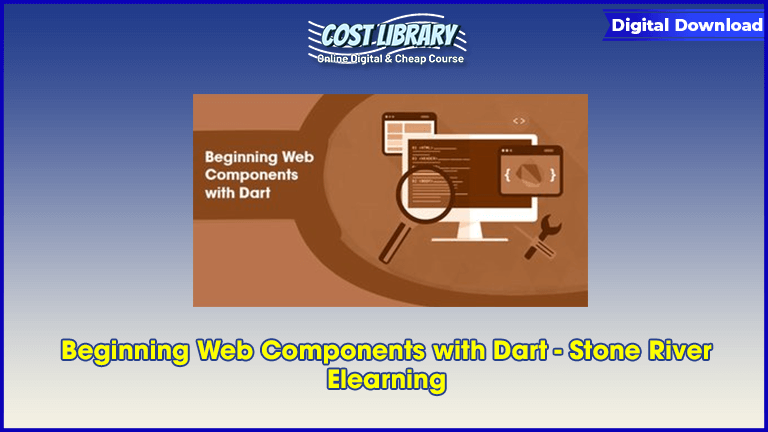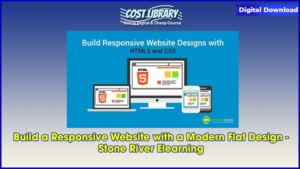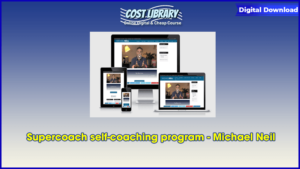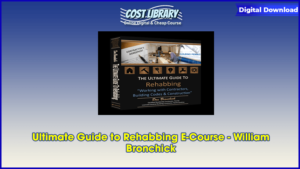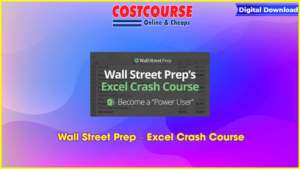Beginning Web Components with Dart – Stone River Elearning
Use Google’s new language in real projects
Keeping on top of the latest progress in web development can be daunting. There are always new languages to learn, new applications to create with them, and endless possibilities. Learning web components with Dart is an excellent place to , however. Whether you’re a coding veteran or just dipping your toes, Dart will massively streamline your web development projects by eliminating endless lines of code, implementing complex features with a few clicks, and cutting down on the time and effort it takes to create top notch web components.
Get to Grips with Web Components
Simplify code and boost web development efficiency
Compose custom web components alongside existing ones
Learn Google’s new Dart programming language
Use web components from Google and other powerhouses
Future-proof your programming skills
Master Dart Programming in Just a Few Hours
This course has been especially designed for web developers and designers who are already familiar with javascript libraries, HTML and related concepts. While you don’t need to be an expert, some background knowledge certainly helps.
Over the course of 61 lectures and 4 hours of concept you will learn all the ins and outs of the Dart as well as how to create and implement web components using this programming language. You’ll cover syntax and usage first and after establishing the groundwork, you’ll move on to the nitty gritty of web components. That means learning all about their origins, advantages, features and proper use.
Following that, you’ll work on a project that will allow you to put all that theory to practice, creating real world web applications using Dart. When finished, you’ll have enough hands-on experience with Dart to be able to apply it to any relevant web development project.
Tools Used
Dart is a new programming language designed specifically for building web, server and mobile apps. It is class based and object oriented, but easy to follow. A wide range of tools, libraries and documentation makes it versatile and perfectly suited for modern web applications.
Course Curriculum
Course Introduction
Introduction to the Course (3:33)
Introduction to Dart’s Tools (0:45)
What Skills You Will Gain From This Course (0:39)
What You Will Learn (2:11)
Introduction to DartPad (1:13)
First Look At a Dart Web App (1:21)
Section Conclusion (0:56)
Dart Overview
Section Introduction (3:40)
A Language and a Platform (2:35)
Set up the dev environment (8:29)
Webstorm demo (8:16)
Section Conclusion (1:48)
Nuts and Bolts
Section Introduction (2:15)
Variables (2:06)
Numbers (5:02)
Strings (9:56)
Booleans (1:00)
Lists (4:15)
Maps (5:12)
Progress Check (1:09)
Operators (2:48)
Functions (4:39)
Syntax Shortcuts (1:45)
Conditionals (2:18)
Switch Statement (4:48)
Section Conclusion (1:23)
Beyond Basics
Section Introduction (1:14)
Classes (5:48)
Interfaces (3:39)
Generics (1:56)
Exceptions (0:47)
Futures (7:55)
Isolates (1:09)
Pub (1:14)
Section Conclusion (1:52)
Dart and the DOM
Section Introduction (4:19)
HTML in DartPad (5:31)
Section Conclusion (1:46)
Web Components
Section Introduction (3:36)
Evolution (4:33)
Where do we find existing, quality, trusted web components? (6:21)
Section Conclusion (1:53)
Polymer and Dart
Section Introduction (3:55)
Polymer.Dart (4:21)
How do we set up Polymer.Dart? (1:07)
Section Conclusion (1:34)
Web App
Project Specs and Project Setup (5:20)
Project Setup (cont.) (6:17)
Project Setup Test (8:26)
Section Conclusion (5:50)
On Deck (1:20)
Web App+
Section Introduction (6:39)
Iteration (9:58)
Iteration 2 (8:44)
Iteration 3 (21:16)
Section Conclusion (6:53)
Web App++
Section Introduction (2:18)
Google Maps (9:41)
Google Sign-In (4:47)
Project Summary (5:21)
Course Conclusion
Course Conclusion (2:28)
Get Your Certificate of Completion

